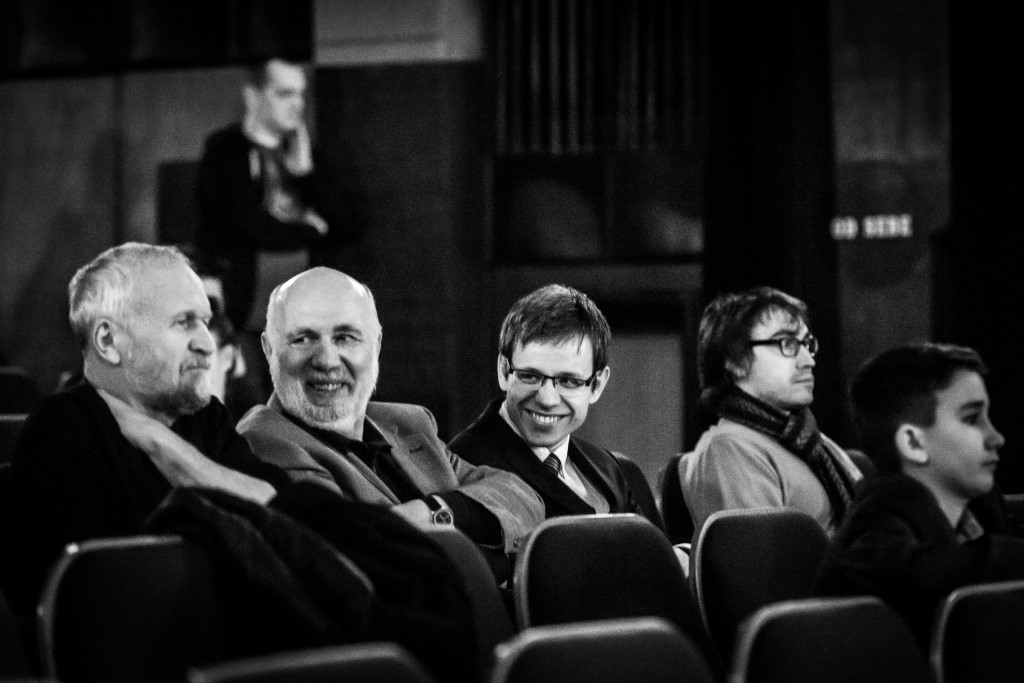Gelfand visits Prague
Former World Championship challenger Boris Gelfand was part of the inaugural Prague Chess Festival in 2019. The Israeli played in the Masters and finished in shared second place on 5 out of 9, scoring wins over Shankland and Harikrishna and losing against Vidit. Although he is not competing this year, he returned to the Czech capital as a special guest.
On Monday, Gelfand gave a simultaneous exhibition against participants of the Futures tournament. The current leader of that category, Ediz Gurel from Turkey, took down Gelfand, while Inna Puhajkova managed to draw the living legend. Gelfand commented:
I like to come here and hope that this Festival will become a tradition that will last for many years. It is great for the young chess players to sit next to the experienced players. I hope they will remember the simultaneous with me and that it will teach them something.
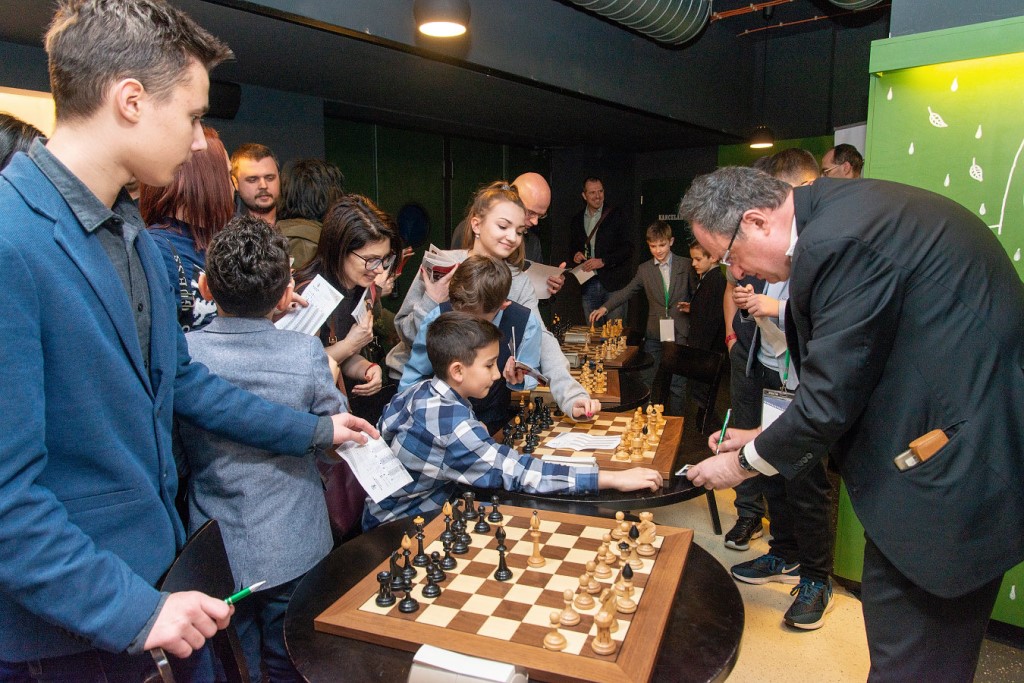
Time to get an autograph! | Photo: Vladimir Jagr
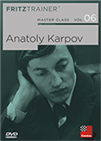 On this DVD a team of experts looks closely at the secrets of Karpov's games. In more than 7 hours of video, the authors examine four essential aspects of Karpov's superb play.
On this DVD a team of experts looks closely at the secrets of Karpov's games. In more than 7 hours of video, the authors examine four essential aspects of Karpov's superb play.Then came the Festival at the Aero Cinema. Fittingly, the first film presented was Halil Efrat's "Album 61", a documentary about Gelfand's experience during the 2012 World Championship against Vishy Anand. When the film was over, there followed a conversation between Jan Novak and Lubomir Kavalek. Kavalek built a strong friendship with Oscar-winning filmmaker Milos Forman — director of "One Flew Over the Cuckoo's Nest", "Velmont", "Amadeus", among others — who was incidentally a chess enthusiast. Kavalek told the following story:
Milos was in Venice at the Festival, so I invited him to Merano, where Korchnoi and Karpov played together. So we watch them play, and he tells me that those chairs where chess players sit for five hours must be very comfortable. I confirmed that to him, and he asked if he could go buy them. So we went to the organizer, Miloš wrote a check and they promised to deliver it in due time.
But nothing happened for a long time, so I persuaded the organizer to contact the company, and finally they arrived. And Milos had those chairs in his study, sitting on them when he wrote the scripts. The Karpov chair broke down in about three years, but the Korchnoi chair still remained. And when Karpov played with Kasparov in New York in 1990, I promised that Karpov would give him a new chair.
After Kavalek's lecture, the documentary film "Magnus" was projected, in which, through an extensive amount of archival footage and home movies, director Benjamin Ree reveals Carlsen's unusual and rapid trajectory to the pinnacle of the chess world.
Round six
Returning to the chess action, the sixth round saw two games ending in draws that lasted 30 moves or fewer, but not without a fight. Nils Grandelius versus Jan-Krzysztof Duda showed correct play by both sides and finished when Duda got to penetrate the second rank with his rook, forcing White to accept a perpetual.
Meanwhile, the game between Pentala Harikrishna and David Anton featured a Catalan — Gelfand joined the commentary team and explained that he plays the Catalan with White because Black needs to be precise to maintain equality, as making a small mistake can cost him dearly. Anton was up to the task and got the half point.
Click or tap an entry of the list to switch between games
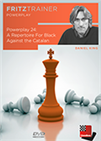 On this DVD Grandmaster Daniel King offers you a repertoire for Black against the Catalan, based around maintaining the rock of a pawn on d5. Keeping central control ultimately gives Black good chances to launch an attack against the enemy king.
On this DVD Grandmaster Daniel King offers you a repertoire for Black against the Catalan, based around maintaining the rock of a pawn on d5. Keeping central control ultimately gives Black good chances to launch an attack against the enemy king.So far, the leader in Prague, Vidit, has won his three games with White and drawn the three times he has played with the black pieces. Against Nikita Vitiugov on Tuesday, he had Black and found himself under pressure out of the opening:
White clearly has the upper hand, with chances to increase the pressure on the queenside against Black's slightly cramped pieces. Here Vitiugov decided to offer a queen swap with 20.♕a4, an offer Vidit did not take long to accept. From this point on, it was easier for the Indian to defend against White's threats. The draw was signed after 39 moves.
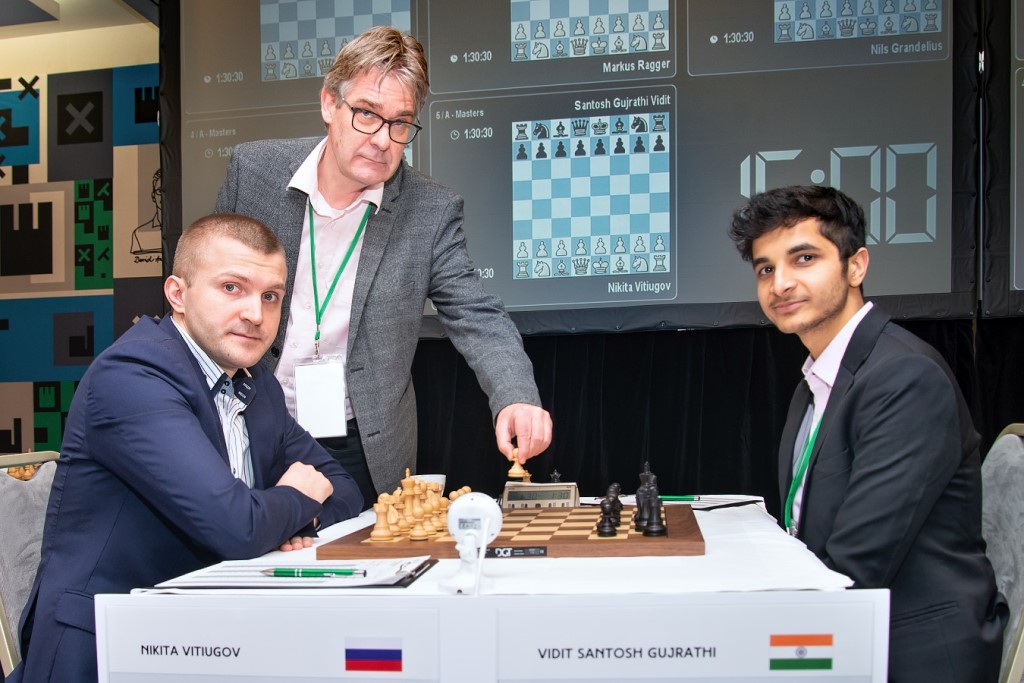
Jeroen van den Berg, chief organizer of the Tata Steel Tournament, played the first move in Nikita Vitiugov v Vidit Gujrathi | Photo: Vladimir Jagr
The player who got closer to getting a full point in round six was Sam Shankland, who showed good preparation with Black against Markus Ragger:
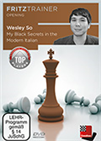 The Italian Game is considered a sound but quiet opening without early trades, giving rise to rich positions where plans are more important than forced variations. So shows black's plans on this DVD.
The Italian Game is considered a sound but quiet opening without early trades, giving rise to rich positions where plans are more important than forced variations. So shows black's plans on this DVD.
Ragger had spent over ten minutes on his previous 12.♖e1, while Shankland continued to blitz out his moves when he responded with 12...d5, a forcing line that gave Black good chances after 13.exd5 ♞xd5 14.♘xd5 ♝xd5 15.♘xe5 ♝xe5 16.d4 0-0-0.
Shankland kept up the pressure, but Ragger never stopped finding the way to keep the struggle going. Eventually, the Austrian grandmaster managed to simplify into a rook endgame a pawn down. Unfortunately for Shankland — who after his first round loss has shown good form — White had enough activity to get the draw.
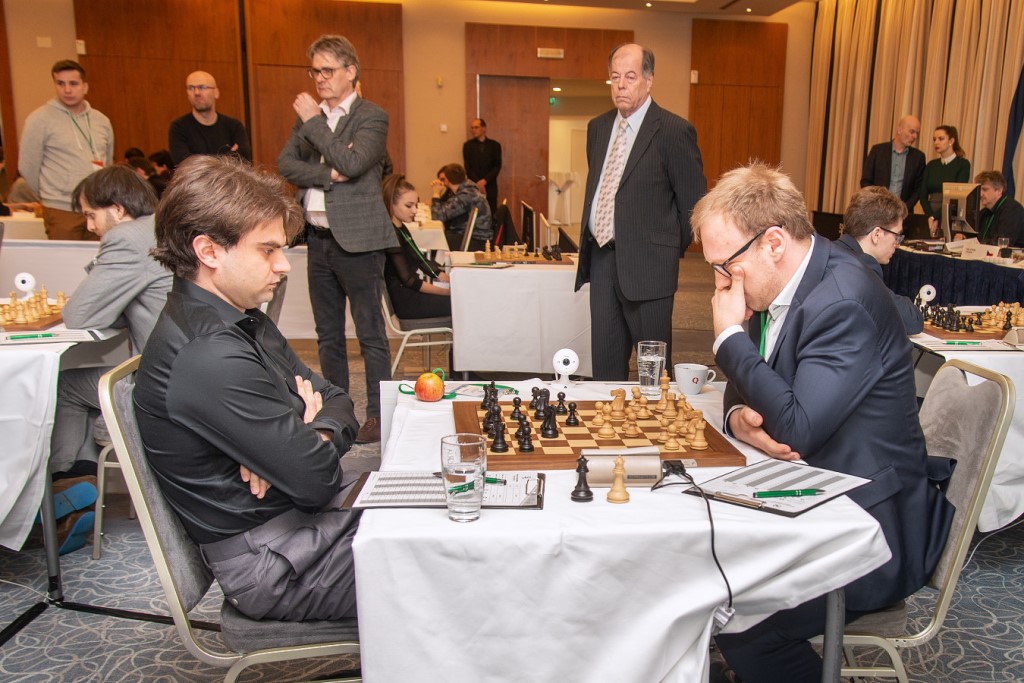
Markus Ragger playing White against Sam Shankland | Photo: Vladimir Jagr
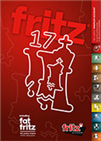 The most popular chess program offers you everything you will need as a dedicated chess enthusiast, with innovative training methods for amateurs and professionals alike.
The most popular chess program offers you everything you will need as a dedicated chess enthusiast, with innovative training methods for amateurs and professionals alike.Another interesting opening battle was seen in Alireza Firouzja versus David Navara. The contenders delved into an Italian, which prompted Gelfand to explain why this opening is so popular in the elite. The Israeli noted that the neural networks like Leela tend to give more optimistic evaluations than Stockfish. A noteworthy insight by Gelfand in this regard is that this fact helps players believe in their positions, a crucial factor when facing a strong opponent.
The 51-year-old from Minsk also gave his opinion about Firouzja:
He's very strong, but still we saw in the last round that he has a lot of weaknesses. But definitely he's ambitious. [...] The question is how quickly he will overcome these weaknesses — some of them come from immaturity, but some probably require some more work.
Gelfand highlighted the importance of experience, concluding that the wunderkind is showing an amazing level at his young age:
In Wijk aan Zee he got to play in a row with Carlsen, Caruana, Anand — he didn't manage. But of course it's a matter of time and the work he will put in. He's extremely strong already and, if you take into account his age, we can say that he has amazing potential. No doubt about it.
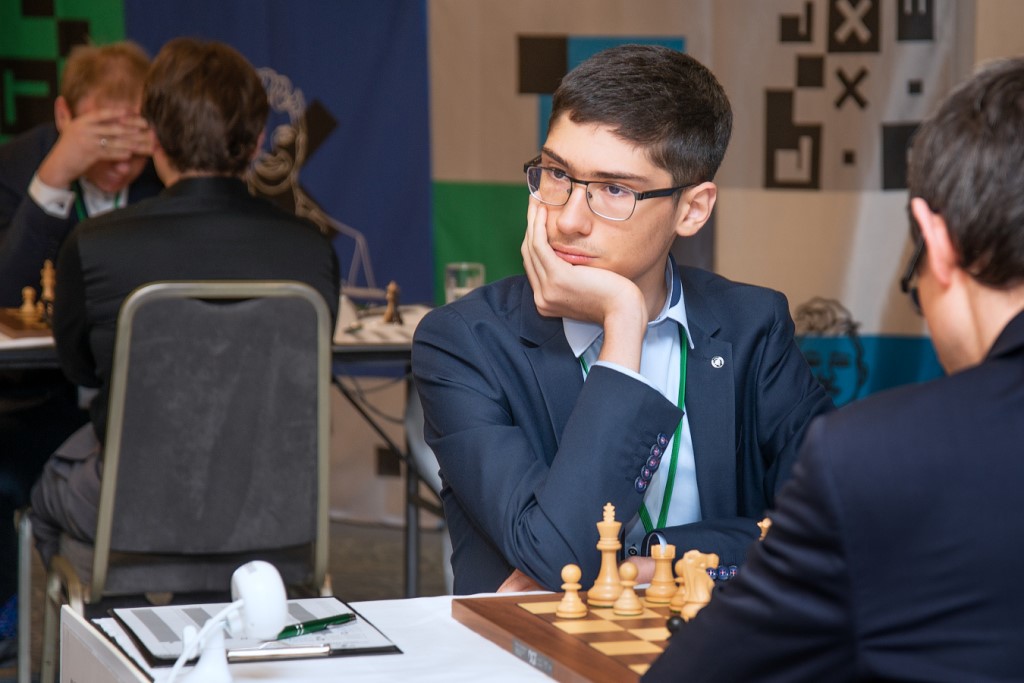
Alireza Firouzja | Photo: Vladimir Jagr
Standings after Round 6
Replay all games
Links
